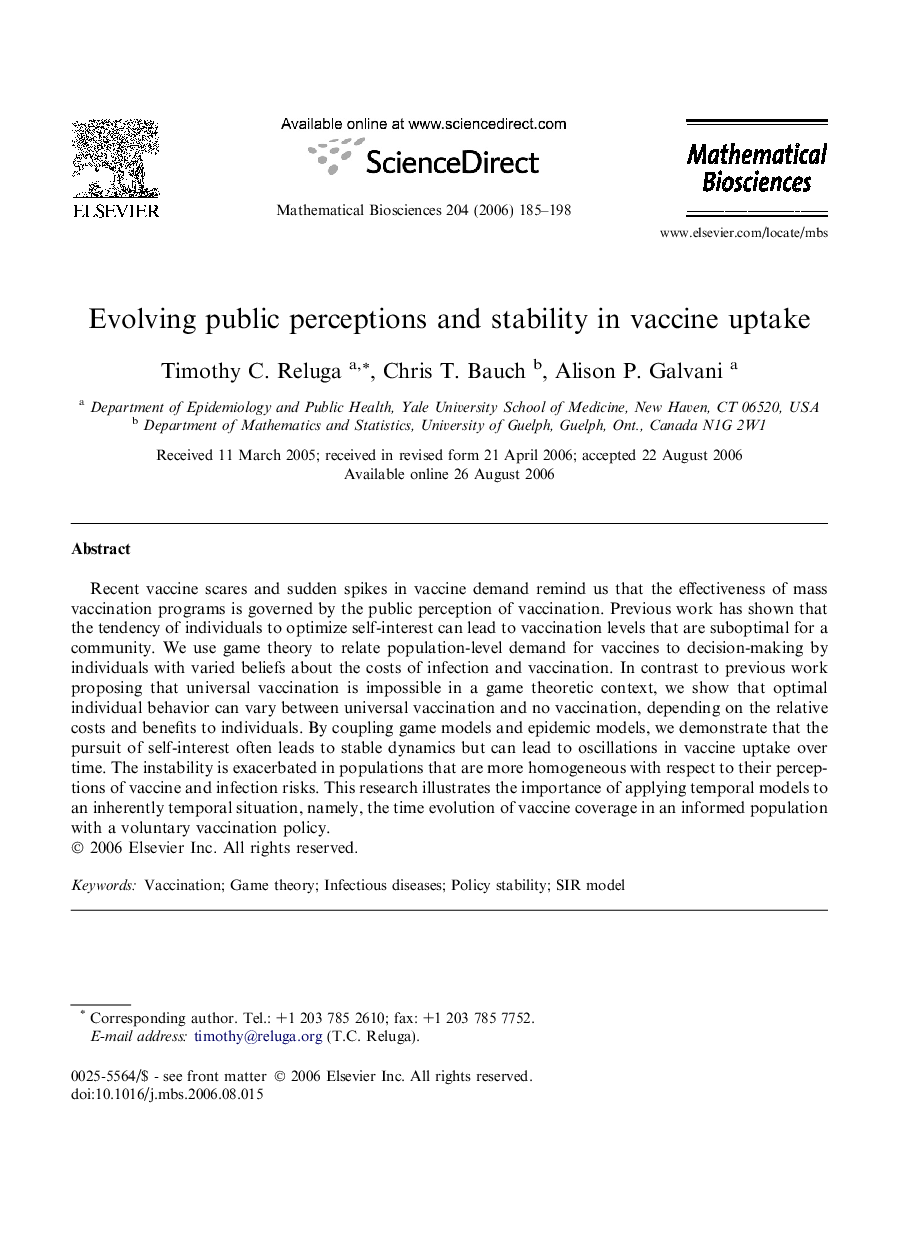| Article ID | Journal | Published Year | Pages | File Type |
|---|---|---|---|---|
| 4500941 | Mathematical Biosciences | 2006 | 14 Pages |
Recent vaccine scares and sudden spikes in vaccine demand remind us that the effectiveness of mass vaccination programs is governed by the public perception of vaccination. Previous work has shown that the tendency of individuals to optimize self-interest can lead to vaccination levels that are suboptimal for a community. We use game theory to relate population-level demand for vaccines to decision-making by individuals with varied beliefs about the costs of infection and vaccination. In contrast to previous work proposing that universal vaccination is impossible in a game theoretic context, we show that optimal individual behavior can vary between universal vaccination and no vaccination, depending on the relative costs and benefits to individuals. By coupling game models and epidemic models, we demonstrate that the pursuit of self-interest often leads to stable dynamics but can lead to oscillations in vaccine uptake over time. The instability is exacerbated in populations that are more homogeneous with respect to their perceptions of vaccine and infection risks. This research illustrates the importance of applying temporal models to an inherently temporal situation, namely, the time evolution of vaccine coverage in an informed population with a voluntary vaccination policy.
